News
Sri Lanka Growth Strategy 2022: Need for building consensus at different levels stressed

Economists and financial experts from diverse sectors highlighted the need for building consensus at multiple levels on Sri Lanka’s growth strategy and implementing sustainable solutions to the challenges faced by the economy.
Speaking at the forum ‘Sri Lanka Growth Strategy 2022’ organised by NextGenSL and World Bank, recently, World Bank Chief Economist for South Asia Region Hans Timmer, World Bank Country Director for Maldives, Nepal and Sri Lanka Faris Hadad-Zervos, former Chairman Ceylon Chamber of Commerce and Senior Vising Fellow at Pathfinder Foundation Rajendra Theagarajah, Economist Dr. Roshan Perera, CEO of People’s Leasing and Finance Shamindra Marcelline and Group Finance Director at Brandix Hasitha Premaratne shared their insights.
“Sri Lanka needs a broad-based dialogue to navigate the current challenges,” World Bank Chief Economist for South Asia Hans Timmer said delivering the keynote address at the event.
Timmer reminded that Sri Lanka faced monumental challenges after the country went into a lockdown in March 2020 with both the manufacturing sector and the service sector suffering its impact. He also pointed out that this led to a huge increase in social protection spending as the government prioritised helping households hit by the economic impact of the pandemic.
The World Bank Chief Economist for South Asia identified the informal sector and the new service segment of the economy as the key drivers of change that will help Sri Lanka realize its true potential.
“Sri Lanka has more opportunities to emerge stronger from the current challenges when compared to other countries in the region. The country can unleash its potential by tapping into the opportunities in the informal sector and in the new service economy,” he explained.
“The informal sector was hit hard in the aftermath of the pandemic and the people involved in the sector became more vulnerable because they were not well integrated into the market. But, it is also important to understand that a ‘crisis’ could also change these dynamics,” Timmer said adding that the rapid development in the digital technology could provide the informal sector with more avenues to access the market.
“Sri Lanka’s new service economy also presents great opportunities. Services are internationally tradable and they push productivity in other sectors. Sri Lanka has greater competitive advantage in the service sector, as the latter is a very strong component of the country’s economy. Also, the percentage of women in the labour force is higher than in many other countries in the region. Nearly 50% of Sri Lanka’s labour force are women,” he explained.
The World Bank Chief Economist for South Asia also commended Sri Lanka’s vaccination drive and said the success the country achieved on the vaccination front could also help its growth trajectory.
Speaking at the panel discussion, former Chairman of the Chamber of Commerce R. Theagarajah stressed the need for finding a lasting solution to ensure debt sustainability.
“If we look at the next 4-5 years, we have to pay USD 4.5 billion annually and it is a challenge we must overcome with sustainable solutions. While the export sector is showing a rebound, the import sector is facing challenges. I am also happy to see that the tourism sector is showing rapid progress presenting opportunities for everyone in the tourism value chain. However, there is a need to build capacity in the tourism sector to ensure continuous growth,” he said. Theagarajah also highlighted value-added ICT solutions as a key driver of Sri Lanka’s growth in the future.
“But, it is critically important to build consensus in the political sphere on the need for structural changes. Without such initiatives, views expressed at economic forums will not result in a major shift on the ground,” he added.
Dr. Roshan Perera, a senior economist with over 20 years of experience in formulating and implementing macroeconomic policies expressed views on broad-basing Sri Lanka’s tax base. “There are two aspects to this. We must first identify the actions that have eroded our tax base in the past and then ‘rationalize’ the tax exemptions granted to various parties.”
“I don’t think a programme designed by the International Monetary Fund (IMF) will be very different to a programme designed by Sri Lankan economists. What is more important here is to understand what needs to be done and to work together to make them happen.”
World Bank Country Director for Maldives, Nepal and Sri Lanka Faris Hadad-Zervos highlighted the importance of a youth-led approach for growth. While commending the progress in the vaccination process, he stated that Sri Lanka must find cost-effective solutions to reverse the ‘damage’ caused by the pandemic. “Focus on productivity, revitalize the private sector and strengthen social welfare schemes,” he said.
“Sri Lanka must have its own narrative and that will shape the country’s growth trajectory,” the Country Director added.
People’s Leasing and Finance CEO Shamindra Marcelline said the role of the state sector should not be undermined in identifying Sri Lanka’s growth prospects. “I believe that the public sector is the engine for growth in Sri Lanka — not the private sector. If you look at it carefully, a number of key sectors such as aviation, ports, education and health are completely dominated by the state. Therefore, increasing efficiency in the state sector will make a massive impact on Sri Lanka’s growth trajectory,” he said.
Brandix Group Finance Director Hasitha Premaratne said that while the pandemic came with multiple challenges, its ‘benefits’ such as the shift towards virtual working environments and the fast tracking of digitalization have opened up new avenues for the private sector. “We must continue this journey, in a sustainable manner, into the future.”
“If the government can support infrastructure development, the private sector is in a position to drive growth,” he said.
Latest News
70,297 persons still in safety centers

The Situation Report issued by the Disaster Management Center at 06:00AM on 16th December 2025 shows that 70,297 persons belonging to 22,338 house holds are still being housed at 731 safety centers established by the government.
The number of deaths due to the recent disastrous weather stands at 643 while 183 persons are missing.

News
MEPA to crack down on marine polluters
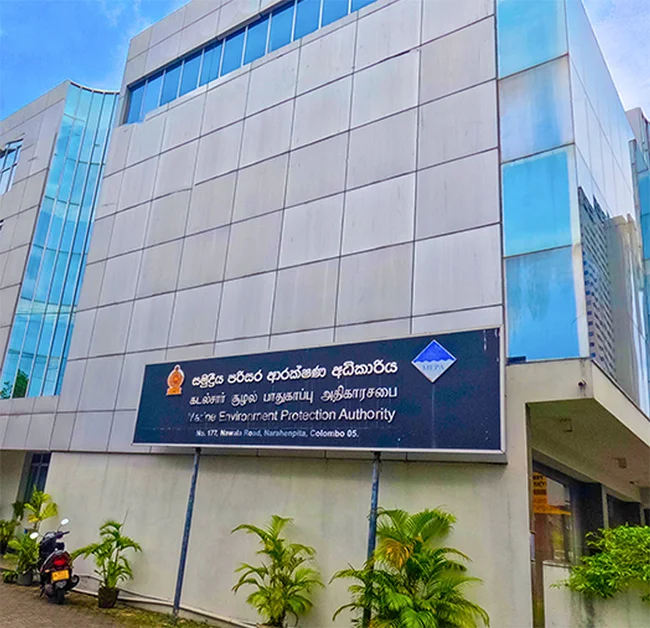
… Warns would-be polluters of criminal prosecution, hefty fines and even blacklisting
The Marine Environment Protection Authority (MEPA) has warned that ship owners, operators and local entities responsible for marine pollution will face criminal prosecution, heavy financial penalties and possible blacklisting, MEPA Chairman Samantha Gunasekera said yesterday.
Gunasekera told The Island that Sri Lanka would no longer tolerate negligence and regulatory breaches that threaten the country’s marine ecosystems, coastal livelihoods and national economy.
“Any party that pollutes our seas—whether foreign vessels or local operators—should be prepared to face the full force of the law,” Gunasekera said. “There will be no room for excuses, delays or backdoor negotiations when marine pollution is involved.”
He said MEPA has intensified surveillance of major shipping routes, ports and environmentally sensitive zones amid rising maritime traffic through Sri Lankan waters, which remain among the busiest in the Indian Ocean.
by Ifham Nizam
News
SC delegation, headed by CJ Surasena, observes Indian Supreme Court in action
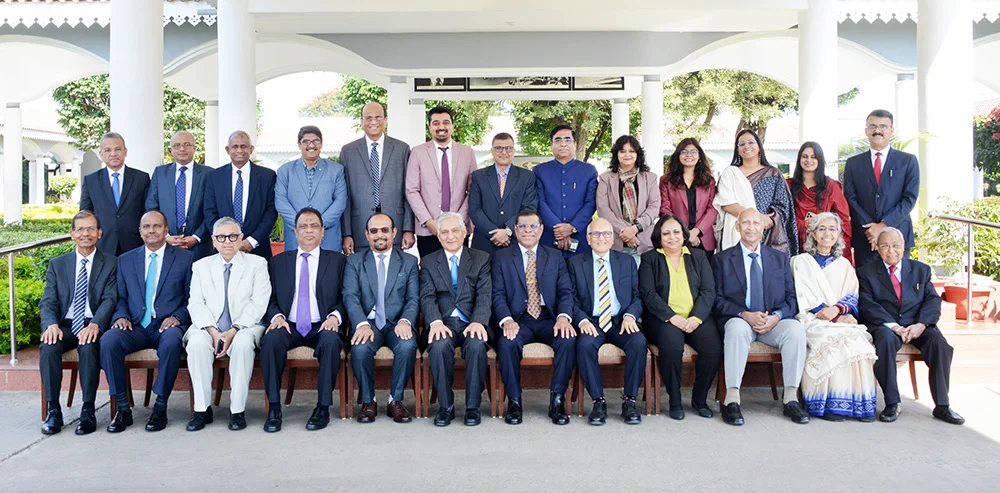
A 10-member delegation from Sri Lanka’s Supreme Court, headed by Chief Justice P. Padman Surasena, departed to New Delhi on the 11th of December, 2025, for an official visit to the Supreme Court of India as part of the ongoing official visit by the delegation to India.
The group was accorded a ceremonial welcome in the Court’s main hall, led by the Chief Justice of India (CJI) Surya Kant. CJI Kant told the assembled Judges that “the Indian judiciary was honoured to host” their Sri Lankan counterparts, expressing hope that the visit would be “meaningful and very constructive” and underscoring the “close emotional bonds” between the two countries.
The focal point of the programme was a special sitting of the Supreme Court. Chief Justice Surasena joined CJI Kant and Justice Joymalya Bagchi on the bench, presiding over the Court as a guest Justice. He was accompanied by nine other Supreme Court justices from Sri Lanka, who took seats in the well of CJI Kant’s courtroom to observe the day’s proceedings.
Supreme Court Bar Association President Vikas Singh formally greeted the delegation and praised Justice Surasena’s reformist efforts. Singh recalled the Sri Lankan Chief Justice’s own maxim, “If you want something you have never had, then you have got to do something you have never done”, highlighting the bold changes Surasena had introduced to modernise Sri Lanka’s Court system. Singh noted that these initiatives, particularly court digitization, were aimed at eradicating “the persisting problems of law delays” and streamlining case backlogs.
The Sri Lankan Judges spent the morning observing live Supreme Court proceedings in CJI Kant’s courtroom. This first-hand exposure to Indian court operations formed a key part of the programme’s judicial engagement. During the hour-long session, the visiting justices witnessed a range of cases on the Supreme Court’s roster, with Justice Surasena and the delegation following arguments from the front. The experience was designed to be immersive and following the hearing the Sri Lankan Judges were briefed on India’s own initiatives towards a digitalised court system, e-filing and case management systems.
The official programme then shifted to capacity-building and information exchange. In the early afternoon, Indian Supreme Court officials gave the Sri Lankan delegation detailed briefings on India’s technological initiatives. Court registrars demonstrated the e-filing system and other e-initiatives implemented by the Supreme Court of India. Additional presentations outlined the Court’s new case management systems and administrative reforms. These sessions highlighted how digital tools and better case-listing procedures have been used in India to increase efficiency. The Sri Lankan judges asked questions about India’s experience with electronic court records and the integration of technology in daily judicial work, reflecting their own interest in similar reforms back home.
The visit underscored the growing collaboration between the Indian and Sri Lankan judiciaries. Throughout the proceedings, both sides emphasised their shared legal traditions and mutual respect. As Chief Justice Surasena noted during the sitting, India is Sri Lanka’s “closest neighbour,” and historic links, even dating back to ancient epics, form the backdrop for today’s judicial dialogue. CJI Kant remarked that having the chief justices of two vibrant democracies together on the bench was a “significant moment” for the rule of law.
The Sri Lankan delegation continued its programme in Delhi on 12 December with a visit to the Delhi High Court and its International Arbitration and Mediation Centres. The exchange visit is expected to deepen judicial cooperation and provide practical insights for both courts. Officials on both sides say the engagement aimed at sharing best practices in court administration, reinforce legal ties and support ongoing reforms aimed at reducing case backlogs and delays.
-

 Features7 days ago
Features7 days agoFinally, Mahinda Yapa sets the record straight
-

 Features7 days ago
Features7 days agoHandunnetti and Colonial Shackles of English in Sri Lanka
-

 Business5 days ago
Business5 days agoCabinet approves establishment of two 50 MW wind power stations in Mullikulum, Mannar region
-
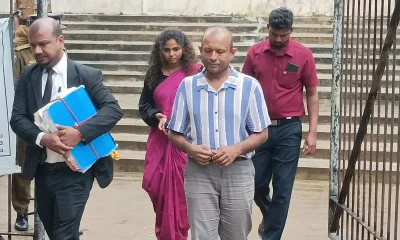
 News6 days ago
News6 days agoGota ordered to give court evidence of life threats
-

 Features6 days ago
Features6 days agoCliff and Hank recreate golden era of ‘The Young Ones’
-
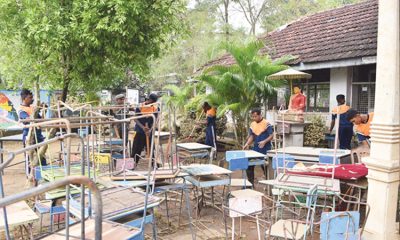
 Opinion7 days ago
Opinion7 days agoA national post-cyclone reflection period?
-
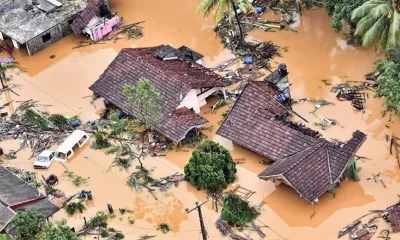
 Features6 days ago
Features6 days agoSri Lanka and Global Climate Emergency: Lessons of Cyclone Ditwah
-

 Latest News6 days ago
Latest News6 days agoSri Lanka squad named for ACC Men’s U19 Asia Cup













